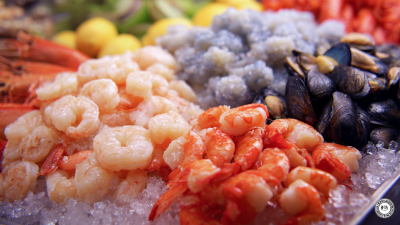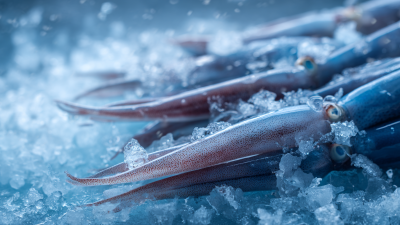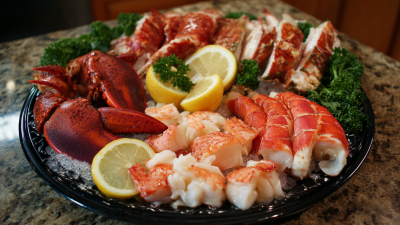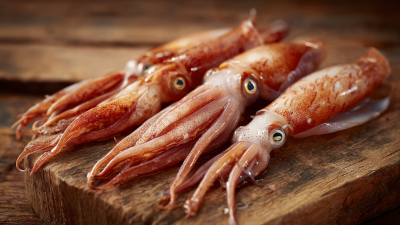Cooking with seafood, particularly "Frozen Squid With Sauce", has gained remarkable popularity in recent years. According to a 2022 report by the Seafood Nutrition Partnership, approximately 70% of consumers are incorporating more seafood into their diets, driven by its health benefits and culinary versatility. With the convenience of frozen squid readily available in supermarkets, enthusiasts can easily whip up delicious meals that rival those found in high-end restaurants. Nevertheless, achieving the perfect texture and flavor can be challenging, especially when it comes to preparing frozen squid, which can become rubbery or bland if not cooked properly.
In addition to being a delightful addition to various dishes, frozen squid also comes with nutritional merits. The USDA notes that squid is rich in protein, omega-3 fatty acids, and essential vitamins and minerals, making it a valuable choice for those looking to enhance their diets. However, to fully capitalize on these benefits and elevate the dining experience, proper cooking techniques are essential. This article aims to provide 10 essential tips for mastering the art of cooking frozen squid with sauce, ensuring that every dish is not only flavorful but also texturally pleasing. Whether you're an experienced chef or a curious beginner, these insights will help you create mouthwatering meals that will impress your guests and satisfy your palate every time.
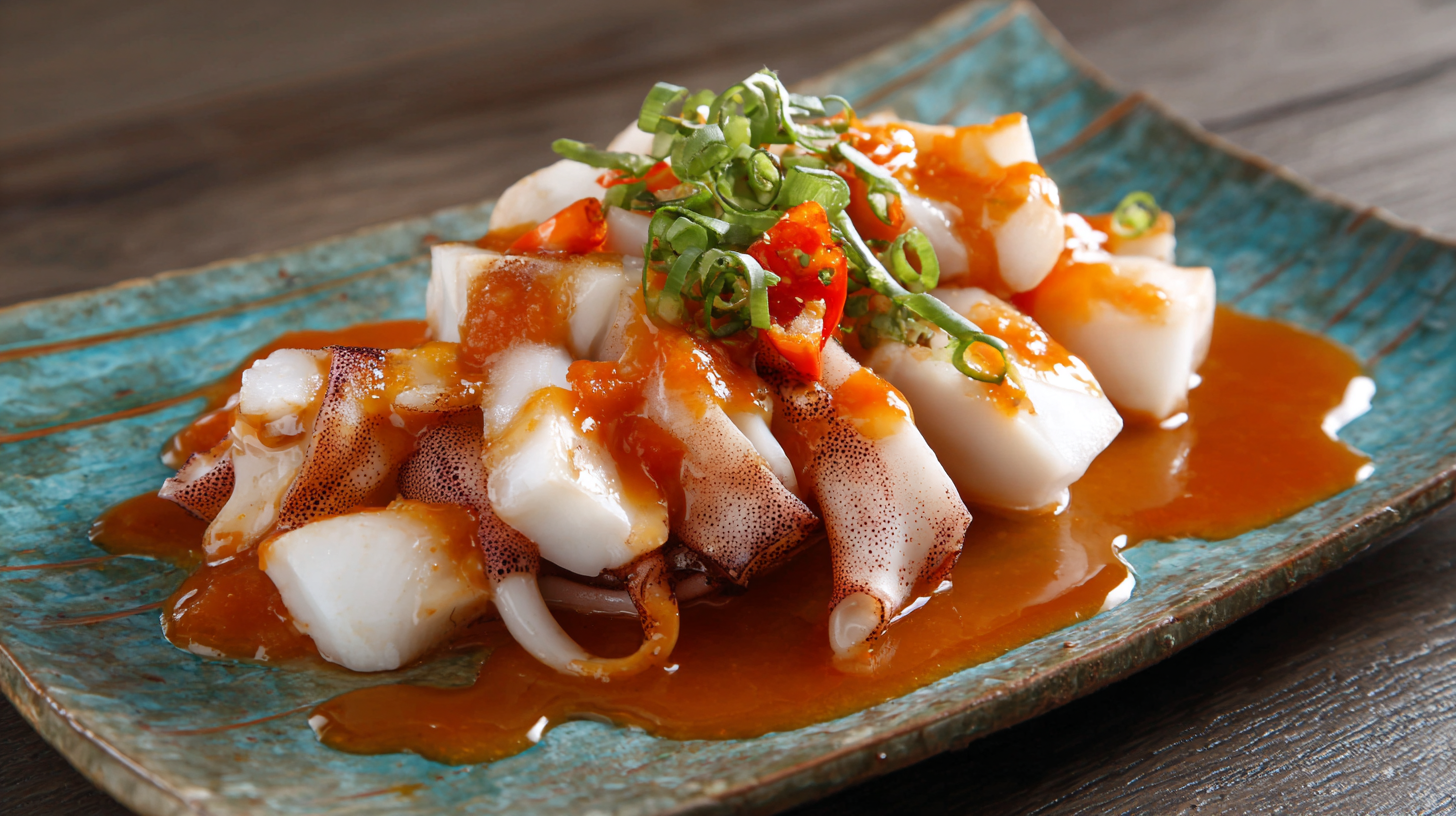
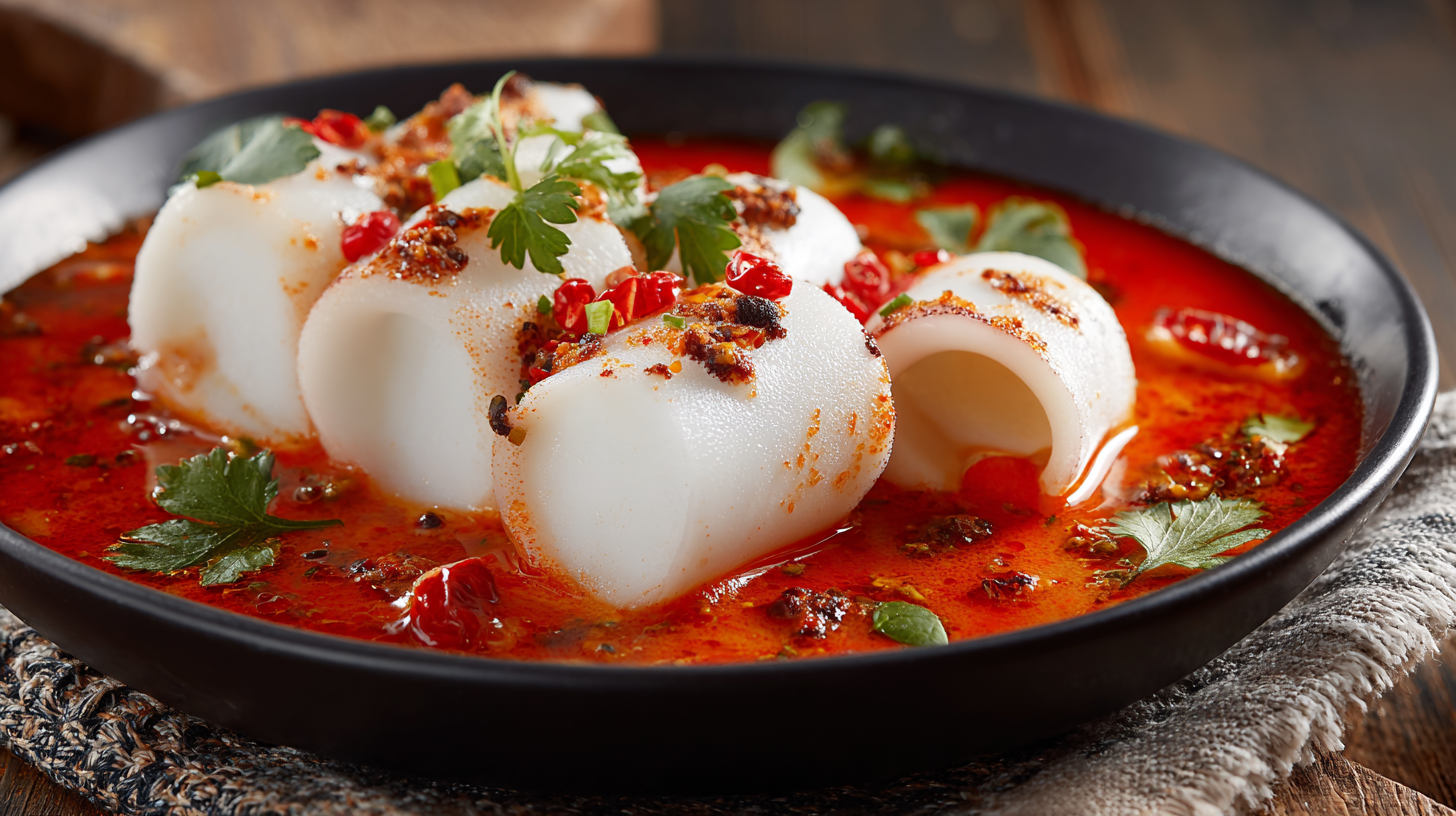 When cooking frozen squid, the first crucial step is proper defrosting to maintain its optimal texture and flavor. Seafood experts recommend several techniques for thawing frozen squid, emphasizing the need to avoid leaving it at room temperature for extended periods, which can lead to a mushy texture. One effective method is placing the vacuum-sealed squid under cold running water for about 30 minutes. This ensures it defrosts evenly while minimizing exposure to bacteria, which can be a concern when seafood is left out.
When cooking frozen squid, the first crucial step is proper defrosting to maintain its optimal texture and flavor. Seafood experts recommend several techniques for thawing frozen squid, emphasizing the need to avoid leaving it at room temperature for extended periods, which can lead to a mushy texture. One effective method is placing the vacuum-sealed squid under cold running water for about 30 minutes. This ensures it defrosts evenly while minimizing exposure to bacteria, which can be a concern when seafood is left out.
Additionally, cooking squid directly from frozen is another valid technique, provided it's done correctly. Experts suggest sautéing or stir-frying frozen squid for a quicker preparation, as the high heat can help preserve its firmness. A report indicates that when seafood is cooked from frozen, it can retain much of its moisture, allowing for a juicier end product. For squid lovers, experimenting with various sauces and spices can elevate the dish while still keeping the squid's natural flavors intact, making it a delightful option for home cooks looking to recreate restaurant-quality meals.
When it comes to enhancing your culinary experience with frozen squid, choosing the right sauce pairings can make all the difference. According to a recent report by the Seafood Nutrition Partnership, seafood consumption is on the rise, and cooking squid is an excellent way to reap the benefits of this nutritious option. The tenderness of squid complements a wide variety of sauces, but certain flavors can elevate your dish from good to extraordinary. For instance, a light garlic and lemon butter sauce can bring out the natural sweetness of squid, while a spicy marinara can add a hearty depth that pairs beautifully with its unique texture.
To achieve the perfect balance, it’s essential to consider the sauce's components. Avoid overpowering flavors that might mask the squid's delicate taste. Instead, opt for sauces that enhance its natural brininess, such as a simple soy and ginger combination, or a citrus-infused olive oil drizzle. When using frozen squid, remember to defrost it thoroughly before cooking, as this ensures even cooking and prevents rubberiness.
Remember, cooking frozen squid with sauces is about balancing flavors and maintaining that prized tenderness. When preparing your dish, keep the sauce light and allow the squid's flavor to shine, ensuring a delectable experience every time.
When cooking frozen squid, understanding and adhering to proper cooking times and temperatures is crucial for achieving the perfect texture and flavor. Generally, frozen squid should be thawed before cooking to ensure even heat distribution. Once thawed, cooking times vary based on the method used—grilling, frying, or boiling. For grilling or frying, aim for a cooking time of about 2-4 minutes per side over medium-high heat. This quick cooking method prevents the squid from becoming rubbery, which can occur if overcooked.
In terms of temperature, the ideal internal temperature for perfectly cooked squid should reach around 145°F (63°C). A reliable way to check this is by using a food thermometer inserted into the thickest part of the squid. If you are boiling squid, a gentle simmer for 1-2 minutes is typically sufficient. Pay close attention to the color change of the squid; it should turn from translucent to opaque, indicating that it is cooked through. By following these scientific guidelines, you can ensure your frozen squid is always tender and flavorful, making it a delightful addition to any dish.
When it comes to cooking frozen squid, the timing of marinating can significantly influence the depth of flavor absorption. Research from the Journal of Food Science indicates that proteins in seafood can absorb marinades more effectively when they are allowed to rest for a specific duration. For frozen squid, thawing it gradually in the refrigerator for 24 hours before marinating is optimal. This not only enhances tenderness but also allows the flavors to penetrate more deeply, resulting in a more flavorful dish.
Timing is crucial when it comes to marinating frozen squid. Ideally, it should be marinated for at least 30 minutes but not exceeding 2 hours; over-marinating can lead to a mushy texture due to the breakdown of proteins. According to a study published by the Seafood Journal, the ideal pH level in marinades can further enhance flavor absorption. Acidic components, such as lemon juice or vinegar, can raise the pH of the squid surface, allowing flavor compounds to interact more effectively with the proteins. Thus, careful timing and pH balancing are essential for achieving perfectly marinated frozen squid with a robust flavor profile.
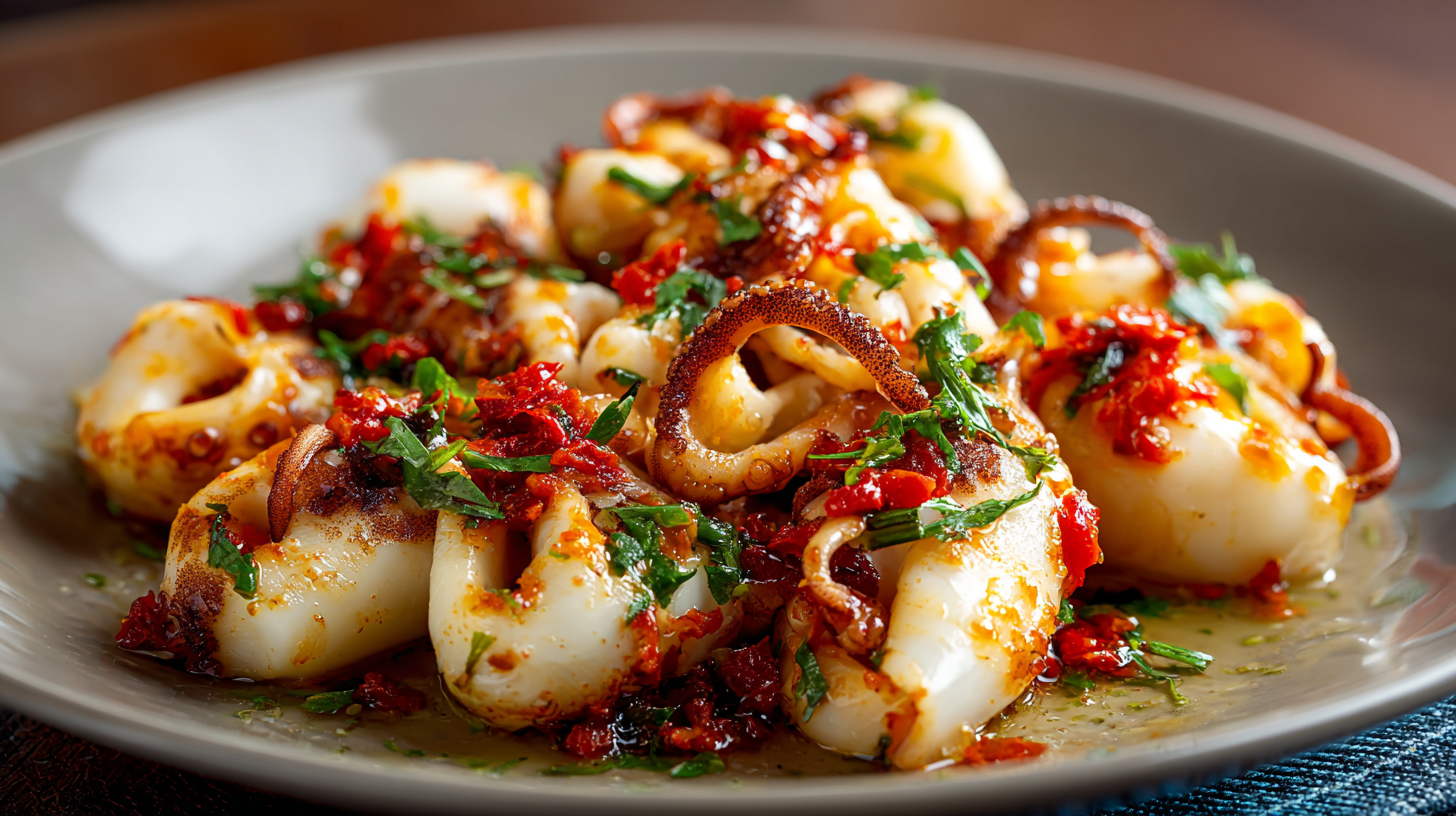
When it comes to serving frozen squid dishes, presentation is key to elevating your culinary experience. To make your dish visually appealing, consider the colors and textures of your ingredients.
Pair the squid with vibrant vegetables like bell peppers, zesty garnishes such as lime wedges, and a drizzle of bright sauce to create a stunning plate. Using white or dark plates can highlight the richness of the squid while adding a modern flair to your presentation.
Moreover, the rising trend of raw seafood dishes has brought attention to food safety, particularly regarding parasites such as anisakis. When cooking squid, ensure it is frozen at a safe temperature prior to cooking, which can help mitigate health risks.
By mastering both presentation and safety, you can not only create stunning dishes but also promote a positive dining experience for your guests. Prioritize cleanliness and aesthetic appeal to impress at any gathering, making your frozen squid dishes memorable and enjoyable.
